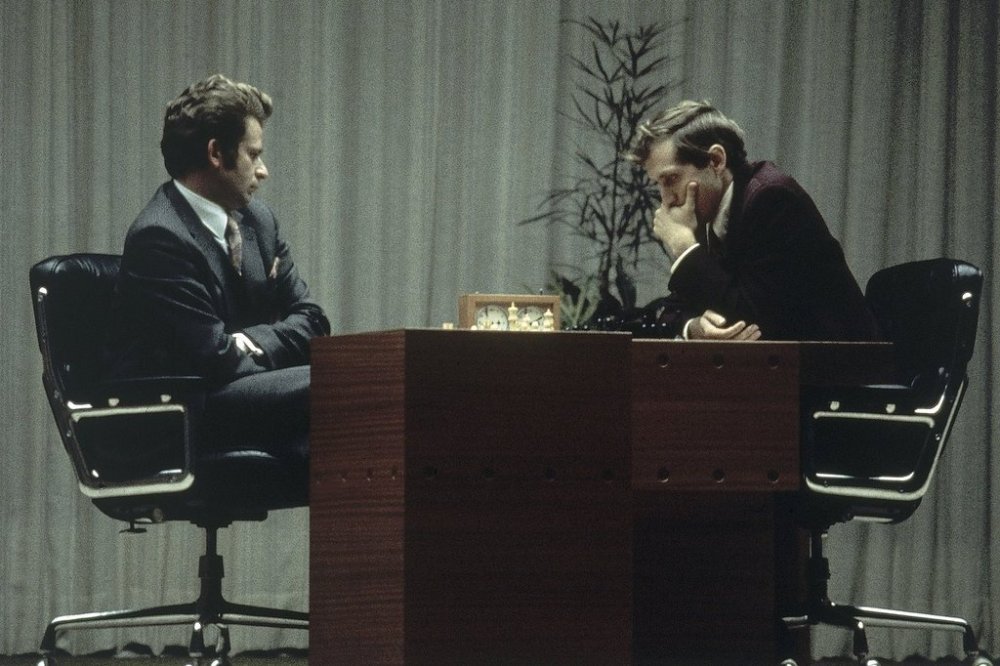Boris Spassky, Soviet chess champion who lost famed Cold War-era match to Bobby Fischer, dies at 88
Advertisement
Read this article for free:
or
Already have an account? Log in here »
To continue reading, please subscribe:
Monthly Digital Subscription
$0 for the first 4 weeks*
- Enjoy unlimited reading on winnipegfreepress.com
- Read the E-Edition, our digital replica newspaper
- Access News Break, our award-winning app
- Play interactive puzzles
*No charge for 4 weeks then price increases to the regular rate of $19.00 plus GST every four weeks. Offer available to new and qualified returning subscribers only. Cancel any time.
Monthly Digital Subscription
$4.75/week*
- Enjoy unlimited reading on winnipegfreepress.com
- Read the E-Edition, our digital replica newspaper
- Access News Break, our award-winning app
- Play interactive puzzles
*Billed as $19 plus GST every four weeks. Cancel any time.
To continue reading, please subscribe:
Add Free Press access to your Brandon Sun subscription for only an additional
$1 for the first 4 weeks*
*Your next subscription payment will increase by $1.00 and you will be charged $16.99 plus GST for four weeks. After four weeks, your payment will increase to $23.99 plus GST every four weeks.
Read unlimited articles for free today:
or
Already have an account? Log in here »
Hey there, time traveller!
This article was published 27/02/2025 (291 days ago), so information in it may no longer be current.
MOSCOW (AP) — Boris Spassky, a Soviet-era world chess champion who lost his title to American Bobby Fischer in a legendary 1972 match that became a proxy for Cold War rivalries, died Thursday in Moscow. He was 88.
The death of the one-time chess prodigy was announced by the International Chess Federation, the game’s governing body. No cause was given.
Spassky was “one of the greatest players of all time,” the group said on the social platform X. He “left an indelible mark on the game.”

The televised 1972 match with Fischer, at the height of the Cold War, became an international sensation and was known as the “Match of the Century.”
When Fischer won the international chess crown in Reykjavik, Iceland, the then-29-year-old chess genius from Brooklyn, New York, brought the U.S. its first world chess title.
Fischer, known to be testy and difficult, died in 2008. After his victory of Spassky, he later forfeited the title by refusing to defend it.
Former world champion Garry Kasparov wrote on X that Spassky “was never above befriending and mentoring the next generation, especially those of us who, like him, didn’t fit comfortably into the Soviet machine.”
Spassky emigrated to France in 1976.
On its website, the chess federation called Spassky’s match with Fischer “one of the most iconic” in the history of the game.
Yugoslav grandmaster Svetozar Gligoric said that Spassky’s secret strength “lay in his colossal skill in adapting himself to the different styles of his opponents,” the Washington Post reported.
The chess federation called Spassky “the first genuinely universal player” who “was not an opening specialist, but he excelled in complex and dynamic middlegame positions where he was in his element.”
At the time of their famous match, the Soviet Union had compiled an unbroken streak of world chess championships that stretched back decades.
After his loss, Spassky went home to a cold reception in the Soviet Union, where he had become a national disappointment, the Post said. He said he was not allowed to leave the country, and his marriage, his second, fell apart.
“I feel at home at the chessboard,” he was quoted as saying in a recollection of the Reykjavik match published by the World Chess Hall of Fame in 2022, the Post said. “Our chess kingdom does not have borders.”

